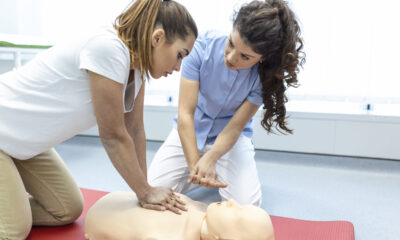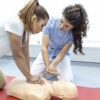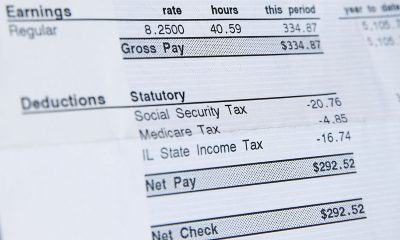How To Improve Your Grammar – 2024 Guide
Learning a new language is tough, there is no question about it. Being able to communicate with a whole different people than yours who have entirely different traditions, cultures, and world views is more than just being able to understand them. Alongside the language you are also learning the patterns of their thoughts, what is more important to them, and how they behave in certain situations. Some languages are so different that you have to also change your tone, the melody of your voice, and even your mood in order to correctly pronounce the words and use the grammar.
Speaking of grammar, it is usually the bane of all language students. Whether it is the tenses and cases, or perhaps the correct use of articles and prepositions, even something seemingly simple as word order, grammar is usually what confuses the learners most and frequently makes them question their decision to pick up a new language. However, like any other challenge, with hard work and the right advice you will be able to overcome it. Improving your grammar and actually being able to speak a new language feels amazing which is why you should focus on it during your studies.
To help you with this we are going to give you the tips and tricks on how best to improve your grammar. By the end of the article you will now all there is about how you should tackle his age-old problem. Of course, the most efficient way to do so is with professional help, which in this case comes in the form of online language tutors. Their expertise will allow you to practice exactly what you need and they will help identify the exact cause of your issues with grammar no matter the language. If, on the other hand, you want to try to do it alone, you can. Consider the following but remember that you can also do this with a tutor too.
Read More

Source: pixabay.com
Reading texts in your target language is one of the most common exercises you have in the classes and you probably do not mind it. The articles in textbooks are often interesting enough and they follow the grammar and vocabulary that is being taught or revised in that particular unit. However, this is hardly enough. Reading feeds the mind and there is a reason why it has been the dominant way of learning for thousands of years.
If you truly want to improve at a language, particularly at grammar, you have to read in it on your own time and try to examine how it all works when it is being written and used by native speakers.
You will realize that there are countless ways to use the words you already know as well as the constructions that no longer seem to be as complicated as you thought. Find a book in your favorite genre that is not using highly scientific or specific word registers and get to some reading. Make it a habit and you will stop struggling with grammar in no time.
Practice with Exercises

Source: pixabay.com
It may seem like poor advice or a no-brainer, but stick with us here. Doing actual grammar exercises as a part of your in-class studies is not enough practice, nor is the homework you get after it. In order to truly understand the different rules in actual situations, you have to do additional exercises on your own. Challenging yourself and doing different type of work than the one you already do with the teacher will broaden your horizons and allow you to cover more areas of grammar.
There are countless specialized exercises that combine and tackle the usual confusing parts of language, so make sure you look for some of them. Simply revising what you already know is good for staying in shape and remaining “in the language” as the easiest way to forget something in this sense is not to use it at all for some time.
Engage in Conversations

Source: pixabay.com
Both talking and listening to live speech is crucial for you to learn the language as you should and reach the level as close to that of a native speaker as possible. Looking for people to practice with will help you and them and there is hardly a better way of trying to use what you learn than this. If you were learning some other skill, you would be practicing what you know by actually doing it.
Whether a sport or some technical thing, or repairing some machinery, you always first learn the theory and then actually do it. Well, you have practiced the grammar so now it is time to use it, and not just with your peers and your teacher with whom you are comfortable and used to talking.
Go out and look for people in your town, engage in some workshops, or find those looking for the same thing as you on the web. The internet may be your best shot here. Mind that you speaking is as important as listening to others. Together, you will identify each other’s mistakes and give each other advice on the spot.
Write on Your Own

Source: pixabay.com
Similarly to reading, you have to write in your target language on your own. Reading what others wrote and doing exercises where you only have to write what is asked of you is good but it can only help so much. You must learn how to think in your target language and how to put your thoughts (language constructions) on paper.
And it needs to be paper before you move to typing. Doing this part should be done old-school, with pen and paper, as it is both harder and not as effective for real life scenarios if you skip it and go straight to the keyboard. Give yourself some topics and write articles, write your own stories, or simply keep a diary of the things you did during the day.
This way you will be practicing all aspects of grammar, from tenses and irregular verbs as the leading cause of issues to prepositions, articles, and special, language-specific constructions and idioms.



















